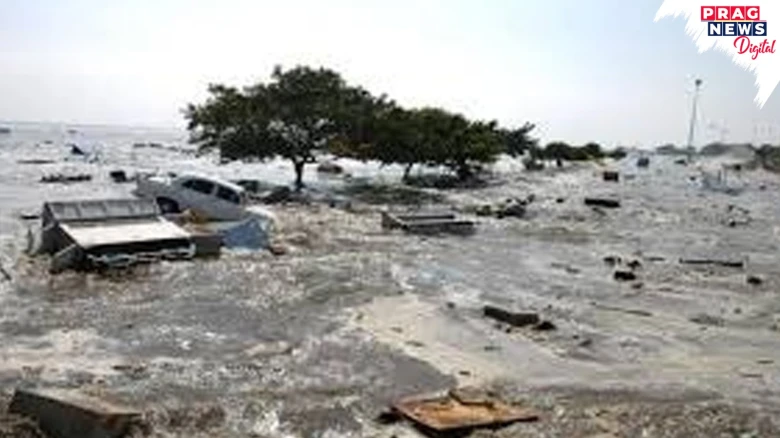Regional

The disaster left some 230000 people dead in 15 countries including Indonesia, Sri Lanka, India, the Maldives and Thailand…
Digital Desk: The disaster of the Indian Ocean tsunami happened on 26th December 2004, which was one of the first highest death toll natural disasters in history. Triggered by a massive undersea earthquake with a magnitude of 9.1 off the coast of Sumatra, Indonesia, the disaster unfolded at 7:59 AM local time. The quake produced a sequence of enormous waves that destroyed stretched along the coasts of the South and Southeast Asia reaching East Africa within the following seven hours of the tsunami waves. In some places the waves was as high as 57 feet (17.4 meters) after which the wreckage of the shorelines could not be rivaled.
The disaster left some 230000 people dead in 15 countries including Indonesia, Sri Lanka, India, the Maldives and Thailand. The casualty was highest in Indonesia which had more than 200000, especially in Aceh province. Sri Lanka and India along with Andaman and Nicobar islands had estimated 50,000 to one lakh deaths and missing persons. The Maldives, an island country consisting of very low lying islands, lost more than a hundred lives and millions of dollars. There many foreign tourists who arrived at the affected areas also lost their lives among the many fatalities.
Few coastal villages, tourist resorts, farmlands, and fishing grounds became almost
uninhabitable or productive because of debris and salt water intrusion. They encountered major constraints such as collapsed structures, contaminated water and a Ig logistical draws which made relief operation a very grim thus contributing to the increased number of deaths. The survivors experienced suffered throughout their struggles as they compounded with shortages of food and medical support.
across the different areas. It stands for one of the most evidence of natural disaster’s capabilities and for the constant exigence of having disaster management and recovery skills.
Leave A Comment